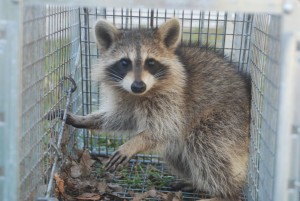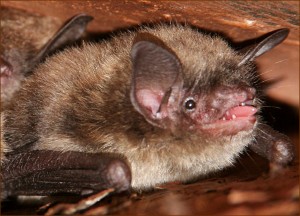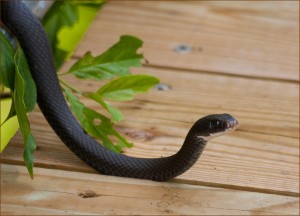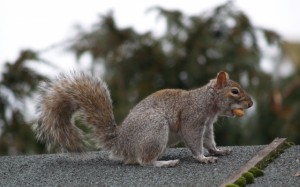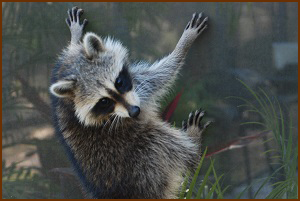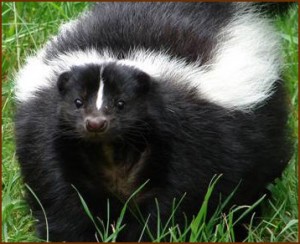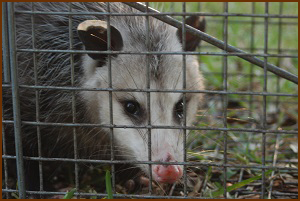South Carolina Wildlife Removal
Welcome to Professional Wildlife Removal, your leading provider of pest control services in South Carolina. Our team of experts specializes in the removal of nuisance wildlife and pests, including bats, squirrels, raccoons, flying squirrels, armadillos, snakes, birds, moles, groundhogs, skunks, opossums, rodents, mice, rats, beavers, wasps, hornets, bees, muskrats, foxes, coyotes, and dead animal removal.
We also offer solutions for household rodent problems and general household pests such as bed bugs. If you have a pest problem that is not listed, please don’t hesitate to give us a call.
At Professional Wildlife Removal, we understand the problems that these animals and pests can cause for homeowners and businesses in South Carolina. From messes caused by fecal matter to contaminated attic insulation and structural damage from chewing through vents, roofs, soffits, and fascia boards, our wildlife technicians have the experience and expertise to deal with these issues on a daily basis. Trust us to keep your property safe and pest-free.
We take pride in our ability to effectively and efficiently rid homes and businesses of nuisance wildlife and pests in South Carolina. We understand the challenges these animals and pests can pose and we have the knowledge and expertise to address them. Our team of Wildlife Technicians is committed to providing top-notch service and ensuring complete customer satisfaction. Don’t let pests disrupt your life, contact us today for a free consultation and let us take care of your pest problem.
Best Wildlife Removal Service in South Carolina
We perform Wildlife Control and Wildlife Removal and feel confident that your nuisance wildlife problem will be solved by calling the top nuisance wildlife control company of Professional Wildlife Removal!
Professional Wildlife Removal is very different from a typical Pest Control company. Pest Control companies focus primarily on insects and bugs and not the Wildlife of South Carolina.
Safe, Humane Pest Control in South Carolina
Pest control companies’ common solutions are to spray pesticides or put down poison. We discourage the use of poison, these methods are dangerous to homeowners with pets and create a bigger problem once an animal or rodent dies in a wall or within the subfloor of your home. We offer safe, humane methods to resolve wildlife conflicts.
Wildlife Damage Home Repairs
Once the animal problem has been resolved we offer solutions to animal proof your home, repair damages including roof repairs, siding repairs, insulation removal, insulation replacement, siding replacement and any other necessary repairs. These are all services that are not effectively handled by a typical pest control company!
We provide Wildlife Removal and Wildlife Control services throughout the State of South Carolina including the cities of Charleston, James Island, Woodhaven, Rantowles, Mt Pleasant, Sangaree and the surrounding areas.
South Carolina Bat Facts
There are approximately 47 documents bat species within the United States and 14 of those can be found within South Carolina. Professional Wildlife provides bat removal services from homes attics, business, commercial buildings and churches of South Carolina. Bats are very beneficial to the environment and South Carolina is home to many species. South Carolina’s bats are divided into two main groupings based on lifestyle. “Cave bats” spend their winters hibernating in caves, and often form colonies to roost and raise their young in the summer. Colonies can be found in hollow trees, or buildings and other man-made structures. “Tree bats” are generally more solitary in nature, roost under pieces of bark alone or in small groups, and spend their time foraging in the upper canopy levels of the forest. All these things make tree bats difficult to study.
They have been known to migrate long distances during the spring and fall. The most common bats found in buildings throughout South Carolina are the Little Brown Bats.
This common house bat is often found in buildings, homes, attics that are near waterways. This is where they forage for mosquitos. A bat can consume 600 mosquitos an hour. This makes them very valuable to have has a neighbor, just not as a roommate!
Common places for bats to form colonies in manmade structures are in attics, under eaves, siding, and shingles. If you discover you have a bat problem call our Bat Experts of Animal Control Solutions today, we have solutions to all types of bat situations within South Carolina.
South Carolina Snake Facts
South Carolina is home to 38 snake species with six of these species being venomous. Venomous snakes include the copperhead, Coral Snake, Cottonmouth, Timber Rattlesnake, Eastern Diamondback and Pigmy Rattlesnake. All of South Carolinas snakes are Pit Vipers with the exception of the Coral Snake. Of South Carolinas’ venomous snakes two of them are very uncommon and rare. These are the Coral Snake and Eastern Diamondback Rattlesnake. The most abundant in the state are the copperhead and cottonmouth.
Although dangerous to humans venomous snakes along with nonvenomous snakes play an important role within the ecosystem. The first normal reaction to a snake encounter is to kill it, but the fact is snakes are beneficial. One important vital role is controlling rodent populations. These reptiles are an important factor in controlling mice and rat populations, in addition to being a good food source for Hawks and other larger predators.
While killing snakes is not a permitted activity, they can be taken when classified as a nuisance species. If you discover a snake in the home contact the professionals at Wildlife Pros to have it Safely and Humanely removed.
South Carolina Gray Squirrel Facts
The types of squirrels found in South Carolina is the Eastern Grey squirrel, Southern Fox squirrel, American Red squirrel and flyiong squirrel. The Eastern Gray tree squirrel is the most common. These squirrels have bushy tails with black-brown and white fur. Which, when viewed from afar makes them look gray. These rodent animals are about 16-20 inches in length and can weigh up over a pound.
Squirrels can be seen in urban, suburban, and rural areas as well as forests. Squirrels prefer to den high off the ground. This is why they take advantage of attics and buildings for denning. Squirrels breed twice a year normally from December to February and May to June. This winter mating season is when you see the most problems with squirrels in attics because they are looking for that warm, safe place to birth and raise their young.
Common sounds heard with squirrels in attics and walls are scratching noises. Most often heard in the morning and evening times, during the day these pests are out foraging for food. If you suspect a squirrel in your attic, chimney, or walls give us a call today to solve your squirrel problem!
South Carolina Raccoon Removal & Raccoon Facts
Raccoons commonly referred to as “coons” inhabit all of South Carolina and throughout most of the US. These mammals can weigh upwards of 30lbs with a length of 3 feet. They are grizzled black, white, and gray with what looks like a black mask over its eyes. They commonly den in hollow trees and ground burrows. Although in urban and suburban areas is it common for raccoons to live in chimneys, attics, and inside other high manmade structures.
Raccoons are omnivorous mammals that eat both plants and animals. In urban areas, they will commonly prey on pet dishes and garbage rubbish. These pests can be a nuisance for homeowners because of the extensive damage they can create. The most extensive damage happens when they tear off shingles and fascia boards in order to access an attic. Then they create more damage by contaminating a home’s insulation and compromising the homes’ R-Factor. The R-Factor decreases the home’s heating and cooling efficiency. This happens from the raccoon smashing the insulation. We have solutions to all types of Raccoon Problems throughout South Carolina.
South Carolina Skunk Facts
Little is know about the abundance and distribution of spotted and striped skunks throughout South Carolina. It is believed that most of the skunk distribution of South Carolina is withing the Piedmont and Foothills regions. Below these areas it is thought that skunks are uncommon and rare. Skunks members of the Mustelidae family, which is more commonly known as the weasel family . Its appearance is similar to the common house cat and can weigh up to 8 lbs. Its common characteristic is its jet black fur with two lateral white stripes that run down its back from its head to the tip of its tail. The striped skunk is species is common throughout the U.S. Skunks commonly will live under structures within urban areas. Skunks commonly feed on small mammals, insects, grub worms, and plants. They are preyed upon by owls, hawks, bobcats and coyotes. They are often susceptible to highway mortality and are affected by diseases such as rabies, distemper and tularemia.
Skunks become a nuisance to homeowners and business when their denning and feeding habits coincide with humans. When their food source becomes scarce they are known to get into garbage, pet food dishes, and dig holes in lawns in search of food. If you are having problems with skunks contact us today to resolve all types of Skunk problems.
South Carolina Opossum Facts
Opossums are commonly found throughout South Carolina and the Eastern United States. Opossums are commonly referred to as “Possums”. These mammals are the size of an average house cat and can weigh up to 14lbs.
Possums are grayish, white in color with a rat-like tail. Opossums should never be attempted to be handled without proper training and knowledge. These animals have 50 sharp teeth with prominent canine teeth that can cause serious injury.
Possums will take the opportunity to den in burrows, brush piles, garages and attics. These nuisance pests eat animals, insects, and vegetables. In suburban areas, they will frequently visit garbage cans, bird feeders, and pet food dishes.
The biggest concern with possums in South Carolina is that they will den under homes structures and are a carrier of fleas. If a possum is discovered under a deck contact us today to get rid of and remove the possum in a safe and humane way.

